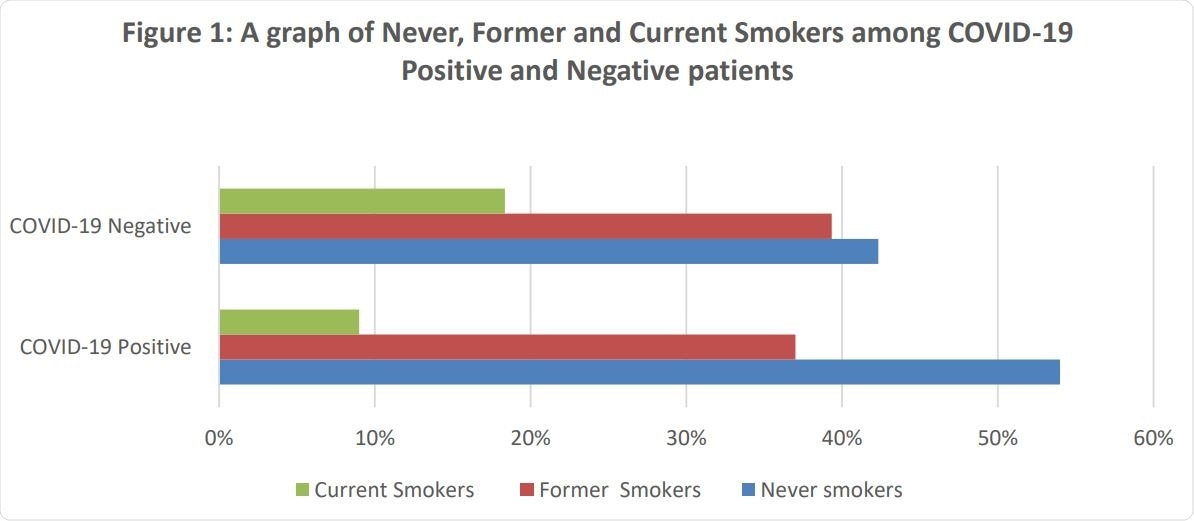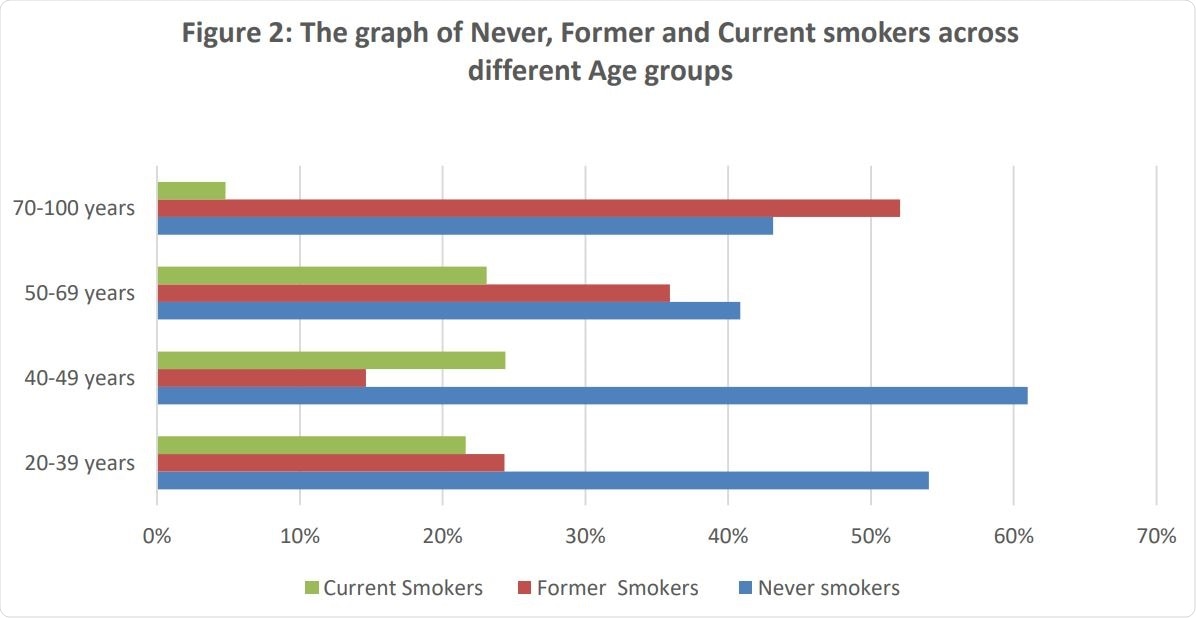Researchers in the United States have conducted a detailed analysis examining whether smoking increases or decreases the risk of testing positive for coronavirus disease 2019 (COVID-19).
The team’s retrospective chart review of patients who tested positive or negative for COVID-19 during hospitalization found that smoking was associated with an increased risk of testing positive among patients aged 40 to 49 years.
On the other hand, men and patients who were aged 50 to 69 years were at an increased risk of testing positive for COVID-19, irrespective of their smoking status.
The study also found that no history of smoking was associated with a decreased risk of testing positive among patients with congestive heart failure (CHF), chronic obstructive pulmonary disease (COPD), and Parkinson’s disease.
“This is the first study to show that smoking increases the risk of COVID-19 positivity among the 40-49-year-old patients, while not smoking reduces the risk of COVID-19 positivity among the heart failure, COPD and Parkinson’s disease patients,” writes the researchers from the Peace Health Sacred Heart Medical Center in Oregon and the University of Illinois at Chicago.
A pre-print version of the paper is available on the medRxiv* server, while the article undergoes peer review.

Figure 1 below shows that while COVID-19 positive patients had a significantly lower prevalence of current smokers (9%), they also had a higher prevalence of never smokers (54%) compared to COVID-19 negative patients. Both COVID-19 positive (37 %) and negative (39.33%) patients had an almost equal former-smokers’ prevalence.
Findings so far have been inconsistent
Since the COVID-19 outbreak began in Wuhan, China, late last year (2019), the association between smoking and the risk of developing the disease has been of significant interest to researchers.
Studies have reported a high prevalence of never smokers and a low prevalence of current and former smokers among COVID-19 patients, leading some to speculate that smoking reduces the risk of testing positive for COVID-19
“However, these studies never compared COVID-19 positive and negative patients,” said Samson Barasa and colleagues. Furthermore, “an increased risk of morbidity, mortality, and need for mechanical ventilator support has been reported among COVID-19-positive current and former smokers.”
In addition, a population-based study conducted in Israel found that never smokers were at a greater risk of testing positive for COVID-19, compared with current and former smokers, while an analysis of UK Biobank data found no association between smoking and COVID-19 positivity.

Figure 2 below shows that the 40-49-year-old patients had the highest (60.98%) and lowest (14.63%) prevalence of never and former smokers respectively. In contrast, the 70-100-year-old patients had the lowest (4.79%) and highest (52.05%) prevalence of current and former smokers respectively. The prevalence of current smokers was almost equal among the 20-39-year-old (22%), 40-49-year-old (24%) and 50- 69-year-old (23%) patients.
What did the researchers do?
Samson Barasa and team conducted a retrospective chart review of hospitalized patients (aged 18 years and older) who had tested positive (n=117) or negative (n= 277) for COVID-19 between 2nd February 2020 and 21st October 2020.
Using Poisson regression analysis, data were stratified by smoking status (never smoking versus a history of current or former smoking) and analyzed following adjustment for a range of potential confounding variables.
The study found that while COVID-19-positive patients had a significantly lower prevalence of current smokers compared with COVID-19-negative patients (9% versus 18%), they also they also had a higher prevalence of never smokers (54% versus 42%).
The prevalence of former smokers was similar between the positive and negative patients, at 37% and 39%, respectively.
How did the risk of testing positive differ between groups?
Current and former smokers aged 40 to 49 years were more likely to test positive for COVID-19 than never-smokers in the same age group.
By contrast, patients who were male and patients aged 50 to 69 years were more likely to test positive for COVID-19, irrespective of their smoking status.
“Although males and the 50-69-year-old patients were at higher risk of testing positive for COVID-19, smoking status had no influence on their COVID-19 positivity risk,” writes the team.
Patients with end-stage renal disease and non-COVID-19 respiratory viral conditions were at a lower risk of testing positive for COVID-19, regardless of their smoking status.
However, among patients with CHF, COPD, and Parkinson’s disease, never-smokers were less likely to test positive for COVID-19.
What are the study implications?
“Based on our study findings, smoking increases the risk of testing positive for COVID-19 among the 40 to 49-year-old current and former smokers, while never smoking reduces the risk of testing positive for COVID-19 among the CHF, COPD and Parkinson disease patients,” say Barasa and colleagues.
On the other hand, males and those aged 50 to 69 years are more likely to test positive for COVID-19, irrespective of their smoking status, they add.
“Our study emphasizes that smoking doesn’t reduce the risk of testing positive for COVID-19, while never smoking doesn’t increase the risk of COVID-19 positivity, despite COVID-19 positive patients having a low current-smokers’ prevalence and a high never-smokers’ prevalence,” concludes the team.